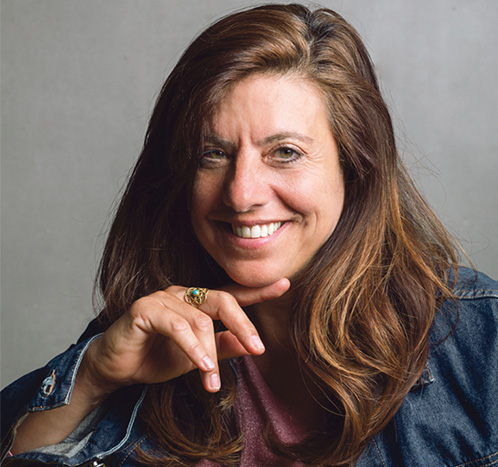The independent Nomads Foundation, recognised as a public utility, invites reflection on the future and presents itself as an architect of ecosystems and a catalyst for change.
It supervises and coordinates four “hubs” focusing on mobility, energy efficiency, the future of jobs, and the social contract 4.0. Sabrina Cohen Dumani answers our questions on redefining progress in the service of an innovative, inclusive, and sustainable society.
What is Nomads’ mission?
Sabrina Cohen Dumani. Our foundation aims to initiate and cultivate a professional dialogue around social and environmental prospects relevant to our region. Our various co-creation and collective intelligence platforms align with the 17 Sustainable Development Goals of the 2030 Agenda of the Confederation.
In this context, we value change and skills upgrade, work ethics, energy transition and mobility; we concretely participate in projects dedicated to hydrogen, decarbonisation in the construction industry, employment and training, volunteer engagement, circular economy, and responsible digital technology.
You invoke collective intelligence on the world’s major challenges. How can we ensure it serves the greater good?
I believe there is no intelligence in evil; intelligence is defined by altruism, not mercantile and cynical growth. The selfish reflexes generated by the industrial revolution and financial speculation of the 20th century now face the evolution of mindsets and environmental upheavals resulting from overproduction and deregulation. Together, we must redefine the right conditions for the human adventure in respect of natural resources and social justice.

Redefining progress in the service of an innovative, inclusive, and sustainable society

But how can we conduct an ethical reflection with professionals constrained by structure, matter, and profitability?
Our projects bring together the main actors of change. Today, public services, companies, researchers, teachers, and citizens are aware of the challenges to be met to save – no more, no less – our biotope and avoid disasters resulting from the overexploitation of natural wealth.
The Nomads Foundation constitutes a remarkable opportunity for sharing among the components of civil society, without the risk of political divisions and ideological positions. We come together on the threats to be combated and the possible progress.
How do you animate your hubs?
We organise meeting programmes on specific themes, during which participants collaborate on the emergence of realistic ideas, but also testify to good practices and exchange on the innovations of their professional sectors. We seek to identify the levers that can be implemented, but also the prospects prefiguring the major evolutions underway.
Our goal is the creation of brainpower driven by competence and experience. Most of the participants are active and engage themselves in a process of change, for their company and its human resources. We also invite experts, including political ones, to facilitate the understanding of the issues.
We are witnessing the emergence of a techno-struggle resulting from the fear of the “machinisation” of work. What do you think of these resistances?
It is true that behind the cooperation offered by digital technology, there often lurks the control and manipulation of data. This is a current theme, at a time when we know that the Net economy is based on the capture of information to sell better.
It is precisely the vocation of the Nomads Foundation to work on these major contemporary challenges, to raise awareness, to train, and then to act within organisations.
Personally, I expect the Swiss authorities to mobilise to protect citizens and companies from the abuses of big data.
If you had a political superpower, what would you do?
I think there is a missing force in the democratic system: that of the wise.
I would create a G10 of the wise, in which spirituality, the spirit, utopia, the ideal could make their voices heard.
And, to conclude this interview: if you could talk to a famous figure, who would you choose?
Plato or Socrates, and why not both, whom I would confront with the concepts of our century. What would they think of our evolution?

Sabrina Cohen Dumani's words

“I believe there is no intelligence in evil: intelligence is defined by altruism and not mercantile and cynical growth. Together, we must redefine the right conditions for the human adventure in respect of natural resources and social justice.”
Sabrina Cohen Dumani
Contact us
Write to usFollow us on Linkedin
Follow usAller plus loin
Ad Valoris interviews Sabrina Cohen Dumani, Founder and CEO of the Nomads foundation
Interview with Sabrina Cohen Dumani, founder and CEO of the Nomads foundation...

